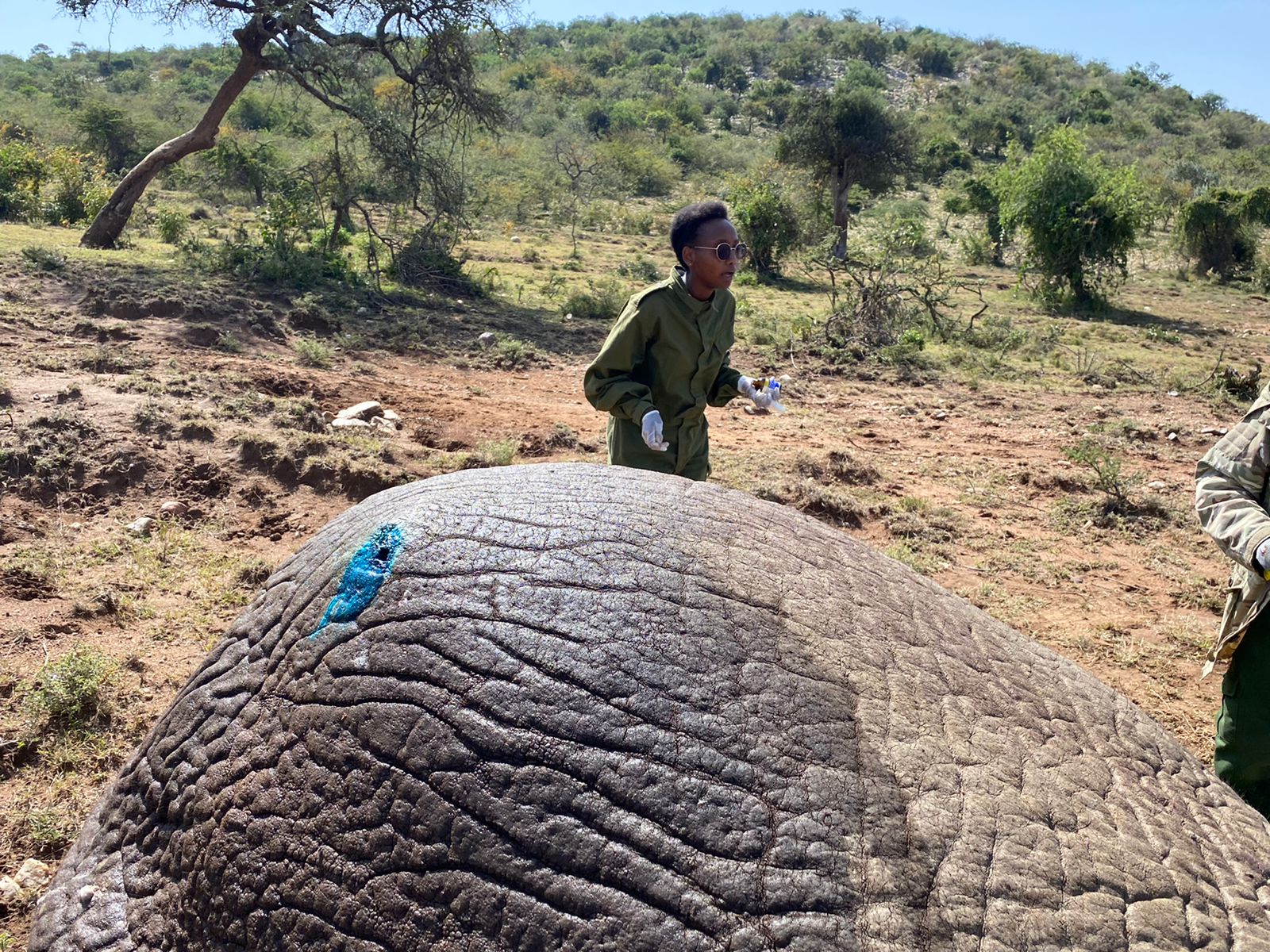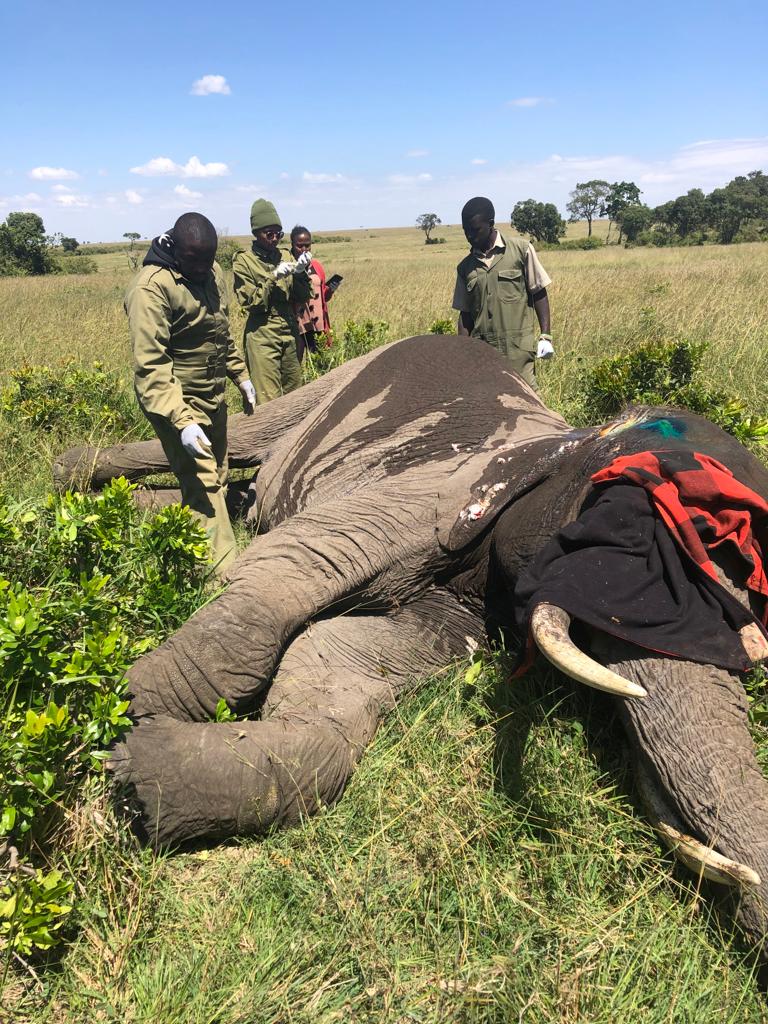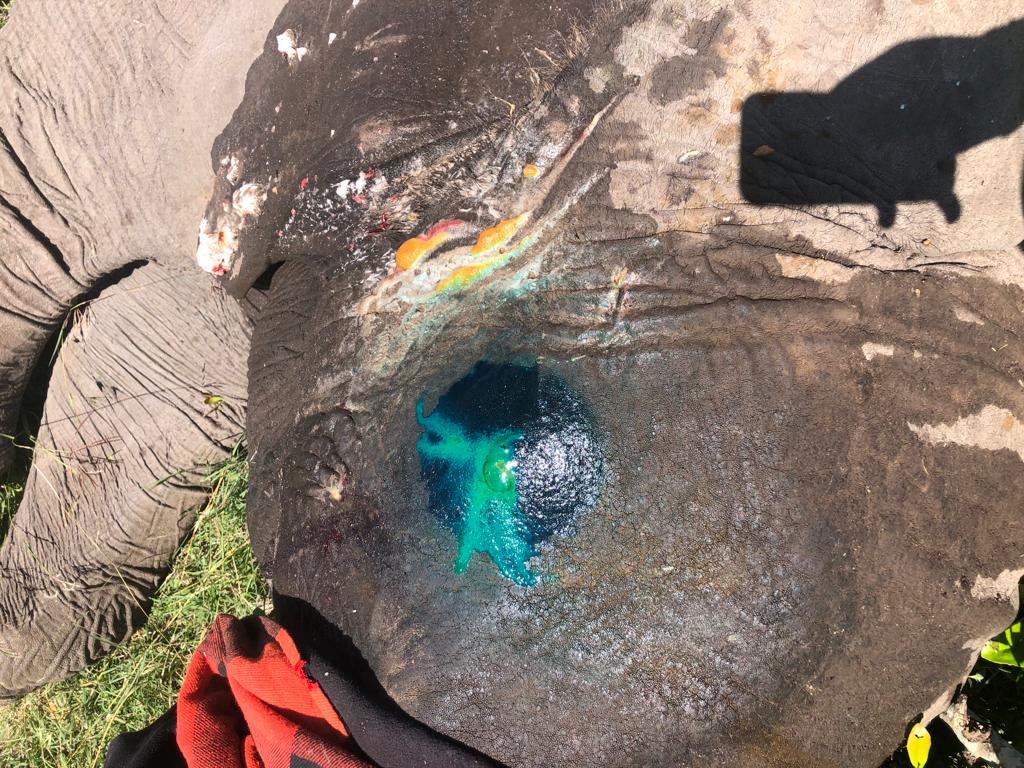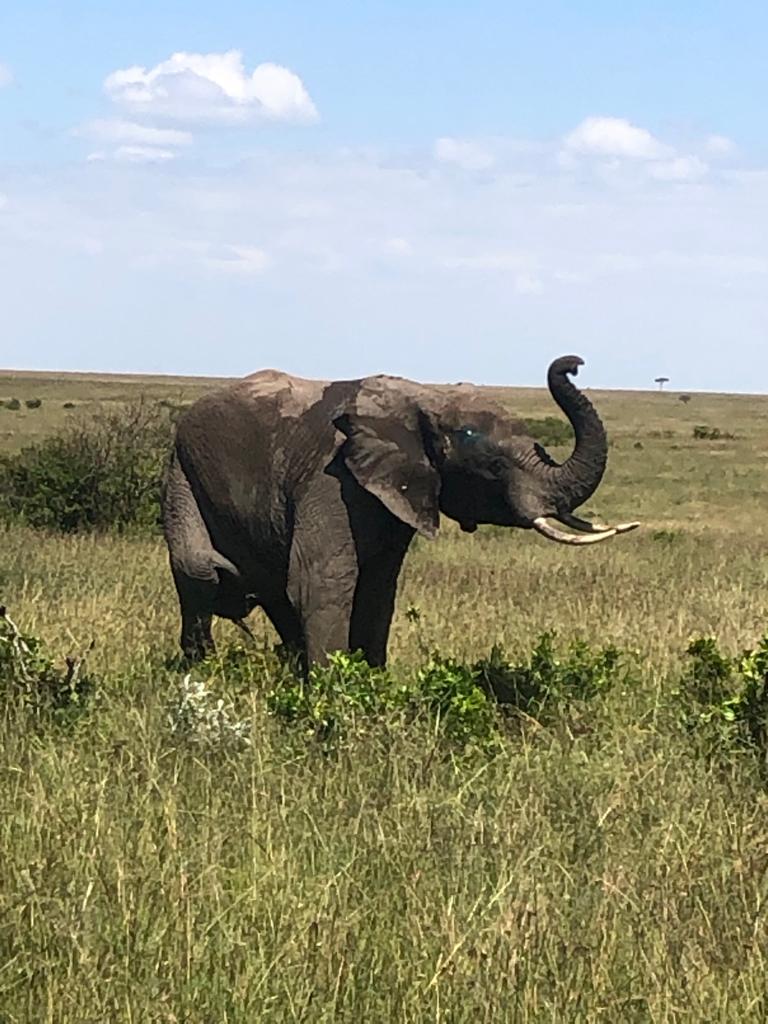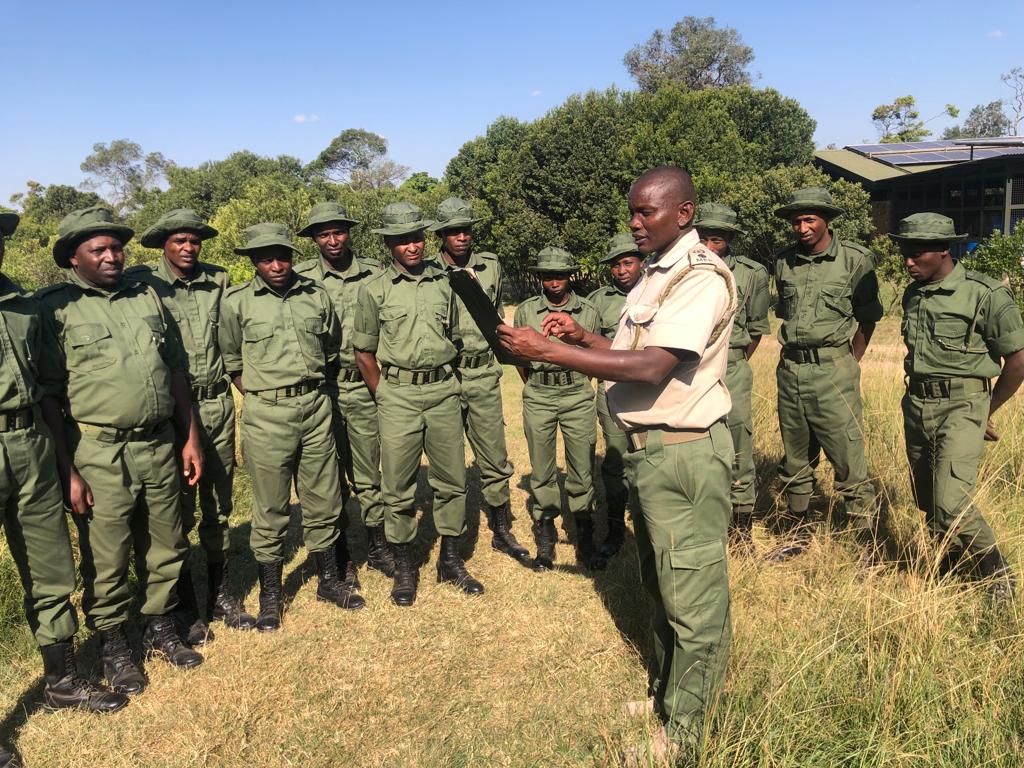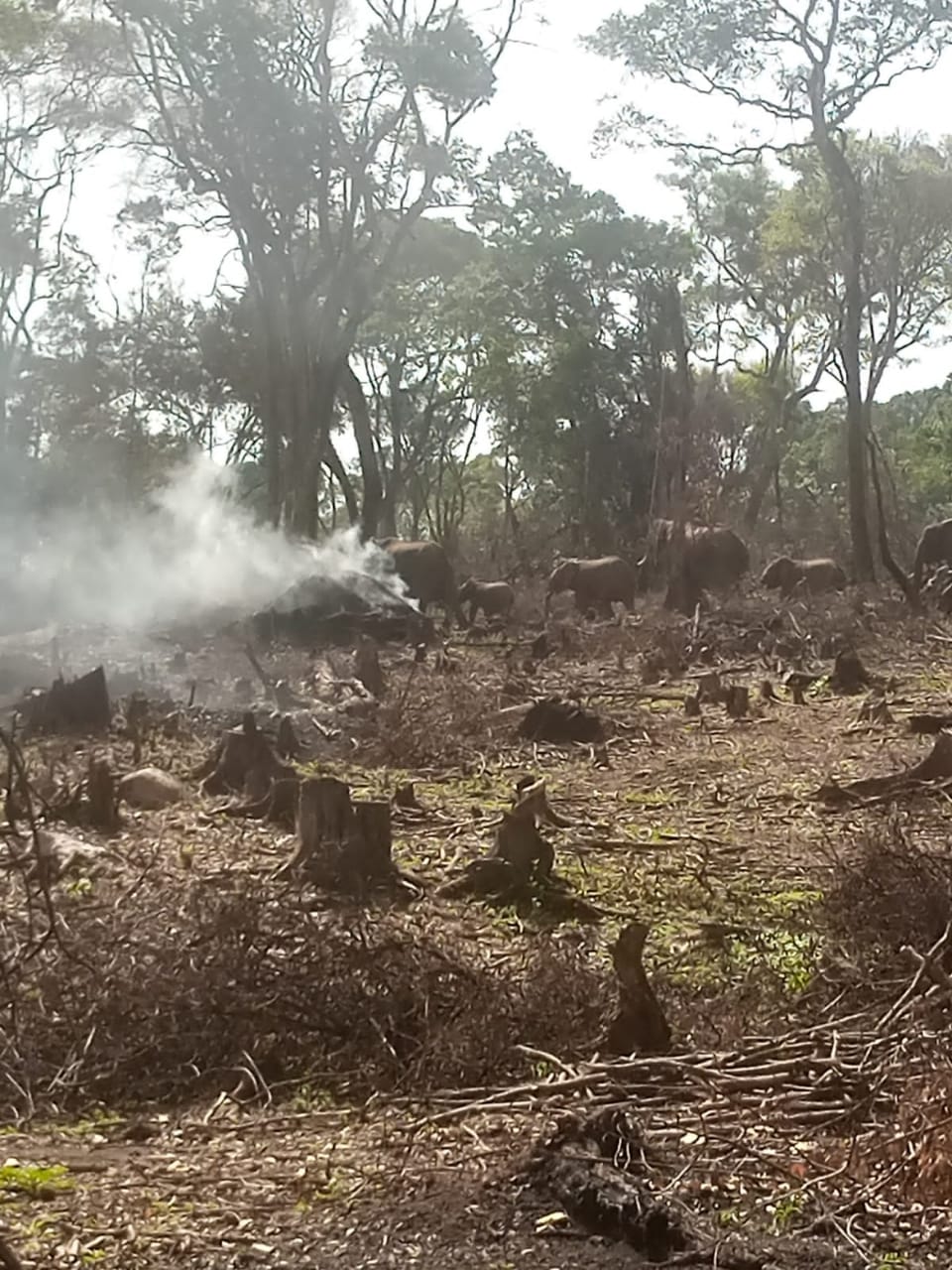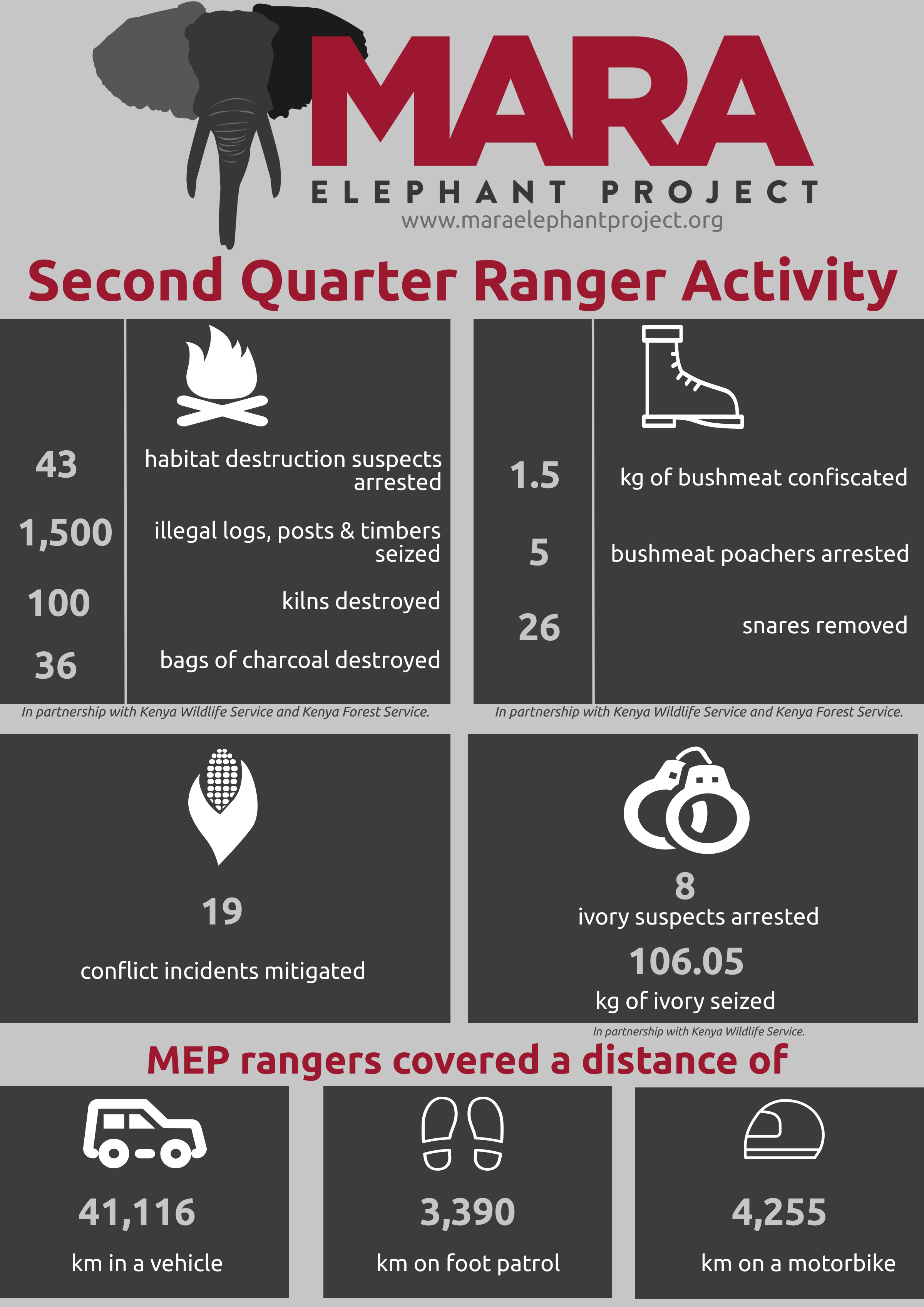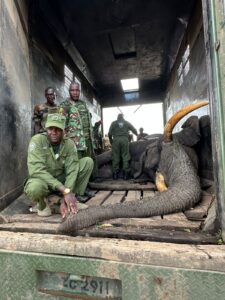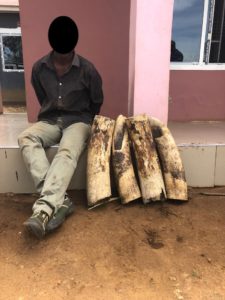 The Mara Elephant Project intelligence unit took part in several successful operations in the second quarter that resulted in 106.05 kg of ivory seized and eight suspects arrested. On April 14, the Tanzania National Parks Authority (TANAPA) arrested one suspect in possession of 34.45 kg of ivory (4 tusk pieces) based on MEP intelligence. In May, there were three separate operations that resulted in 50.6 kg of ivory seized and four arrests made by Kenya Wildlife Service (KWS). Finally, in June, the MEP intelligence unit was involved in a bust that resulted in 21 kg of ivory (five pieces of tusk) and the arrest of three suspects by KWS.
The Mara Elephant Project intelligence unit took part in several successful operations in the second quarter that resulted in 106.05 kg of ivory seized and eight suspects arrested. On April 14, the Tanzania National Parks Authority (TANAPA) arrested one suspect in possession of 34.45 kg of ivory (4 tusk pieces) based on MEP intelligence. In May, there were three separate operations that resulted in 50.6 kg of ivory seized and four arrests made by Kenya Wildlife Service (KWS). Finally, in June, the MEP intelligence unit was involved in a bust that resulted in 21 kg of ivory (five pieces of tusk) and the arrest of three suspects by KWS.
The Loita Forest, or “Naimina Enkiyio” (Forest of the Lost Child) is an extremely important area to protect, home to over 440 elephants, it covers an area of 500 km2 (123,553 acres). The surrounding Maasai community is our ally in protection and our community rangers work tirelessly to ensure that wildlife and wild spaces remain. In March, MEP held a recruitment for a third ranger team dedicated to protecting the Loita Forest, and their training began in June on MEP’s campus.
Current MEP rangers and other core staff also participated in a drone training at headquarters. Drones are a low-cost solution to mitigate conflict and to conduct aerial reconnaissance and field research in the Maasai Mara. The training took place on MEP’s campus and was led by Expert Drones East Africa covering a range of topics to understand how to safely and effectively operate drones in the field. We’re happy to say that MEP rangers and staff successfully graduated from the program and have received their remote pilots’ licenses.
In the second quarter, the MEP ranger teams operating in the Mau, Loita and Nyakweri forests were all focused on combatting bushmeat poaching, illegal habitat destruction activities and promoting co-existence. The MEP “Alpha” and “Charlie” Sheldrick Wildlife Trust Mau De-Snaring Units in the Mau Forest destroyed kilns, shutdown illegal logging sites and made arrests alongside KWS inside the forest. The MEP “Echo” and “Bravo” ranger units in the Loita Forest, sponsored by Lori Price, were busy protecting the forest and the wildlife that call it home during the second quarter. Over just one week in May, they had a bust that included 100 cedar posts then another with 200, and shutdown several illegal logging sites, made arrests and confiscated power saws.
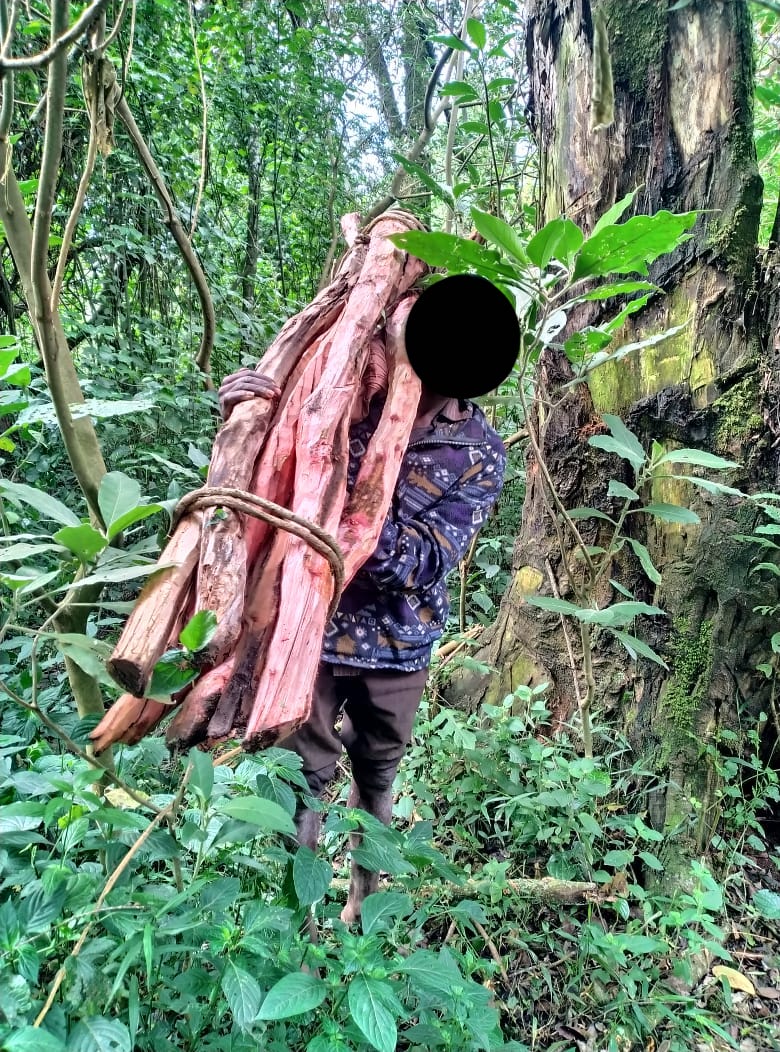
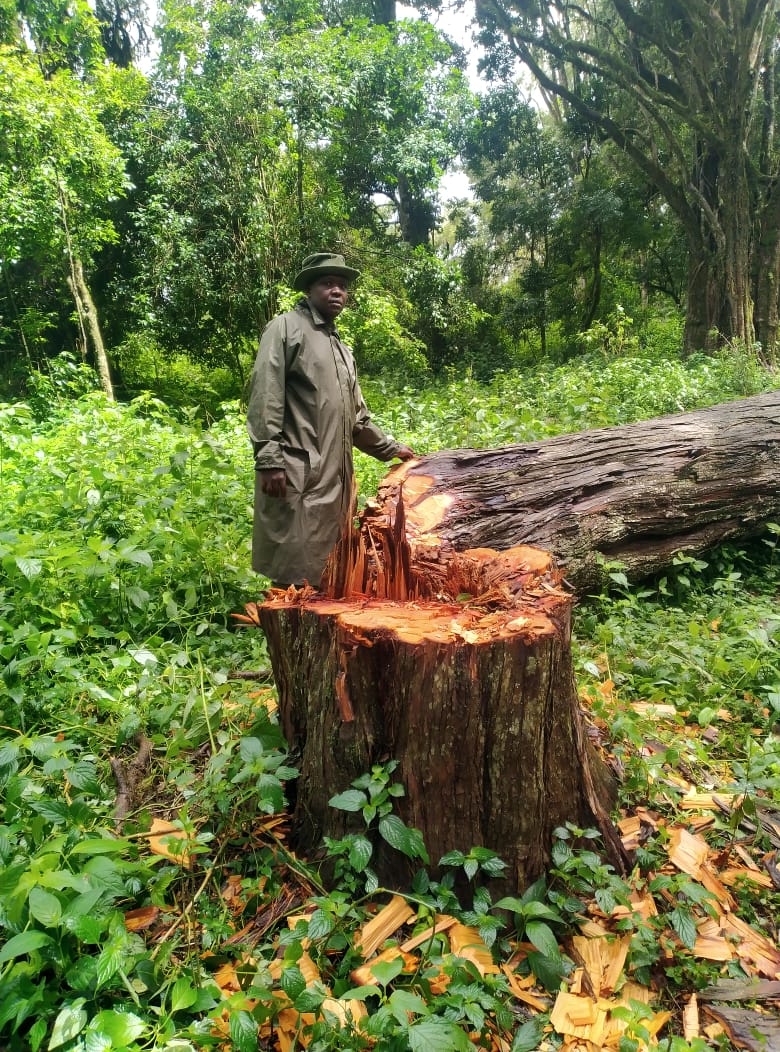
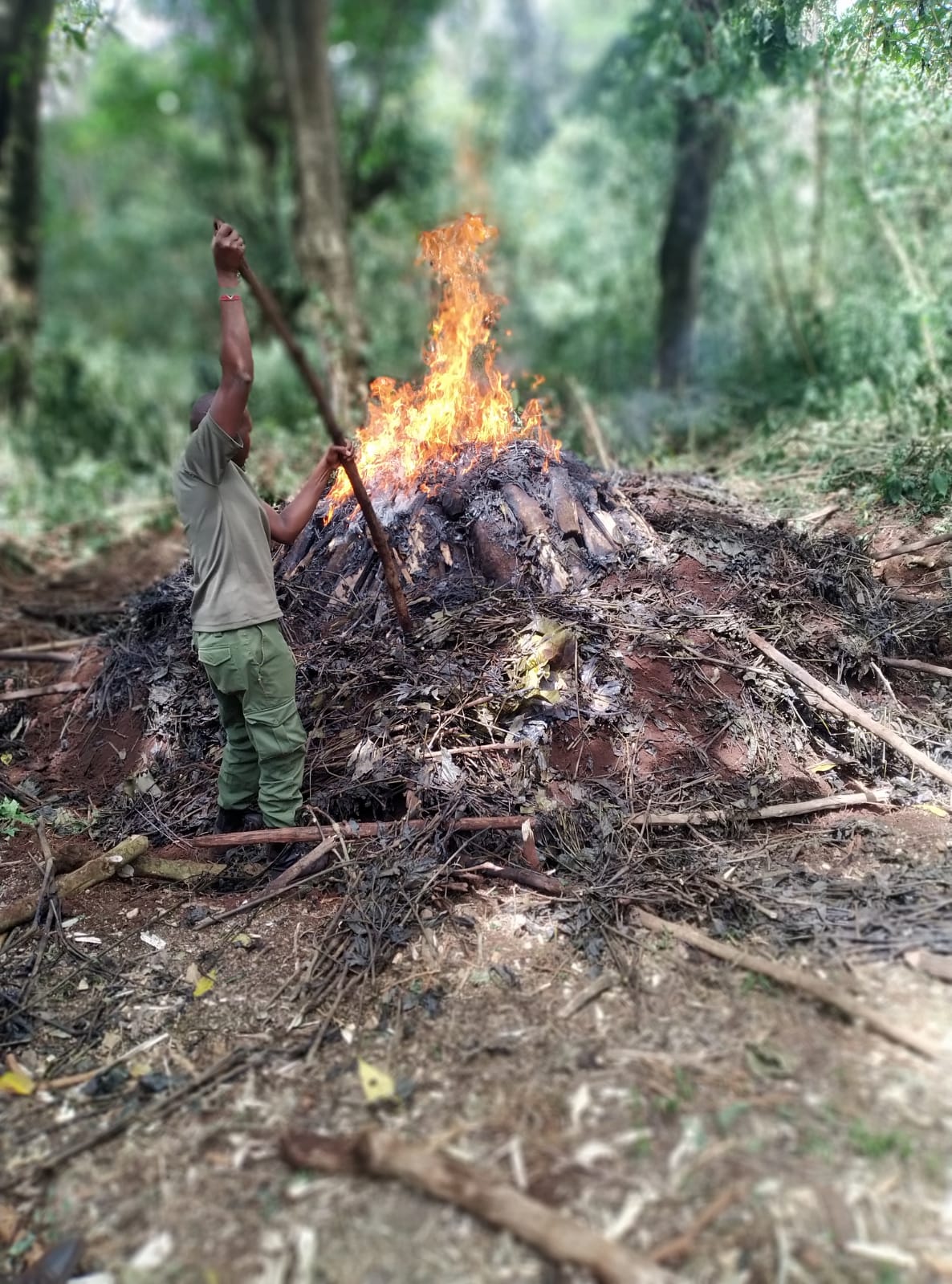
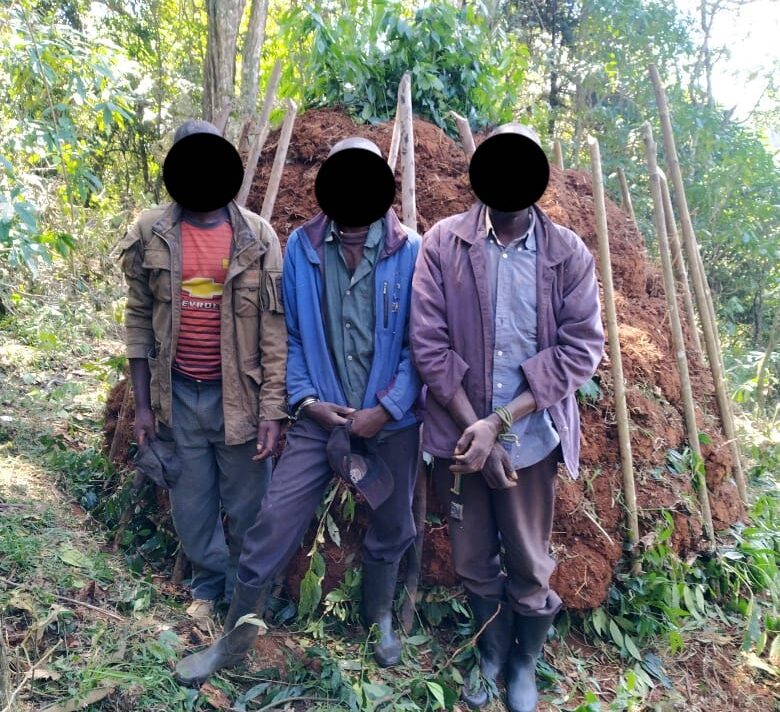
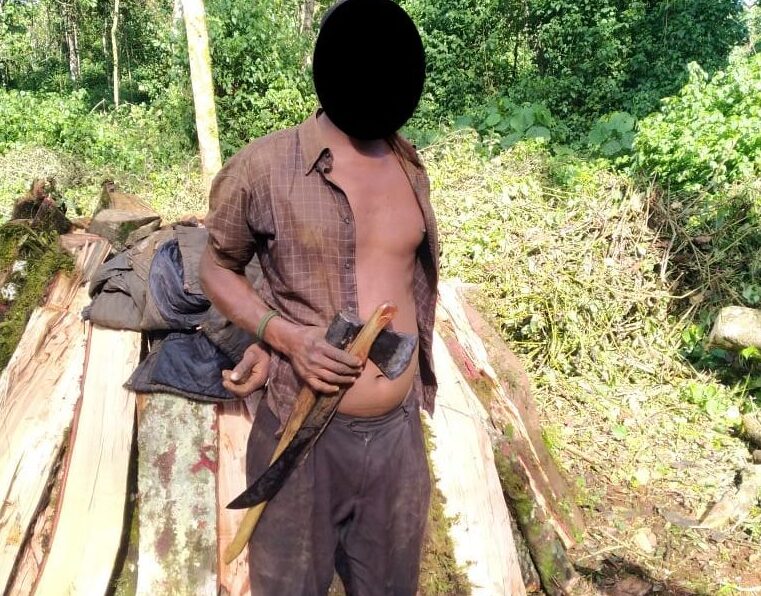
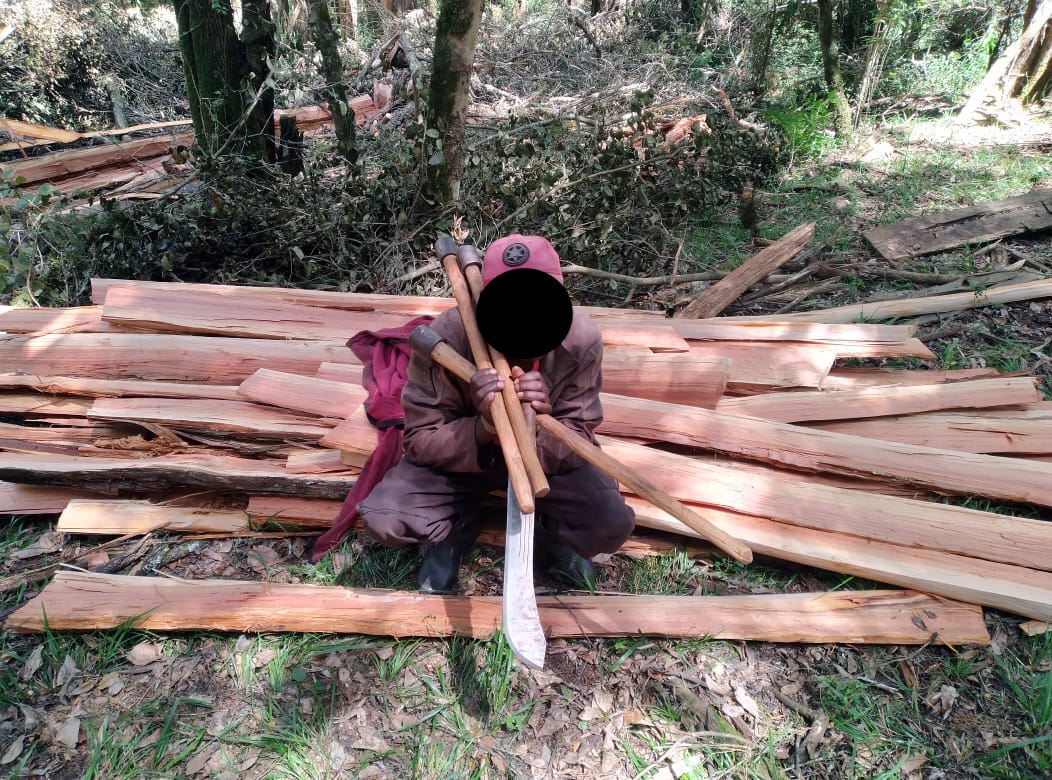
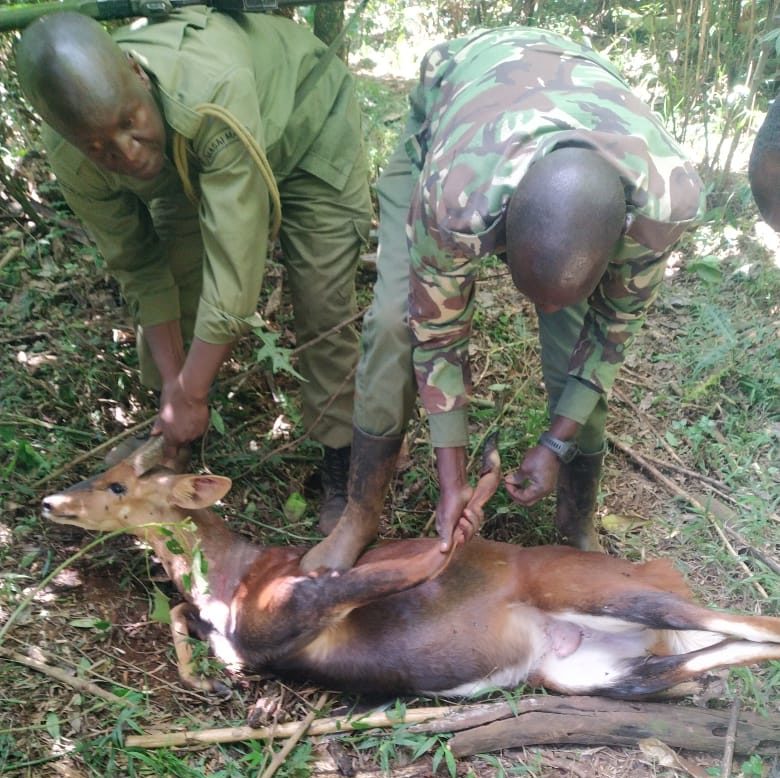
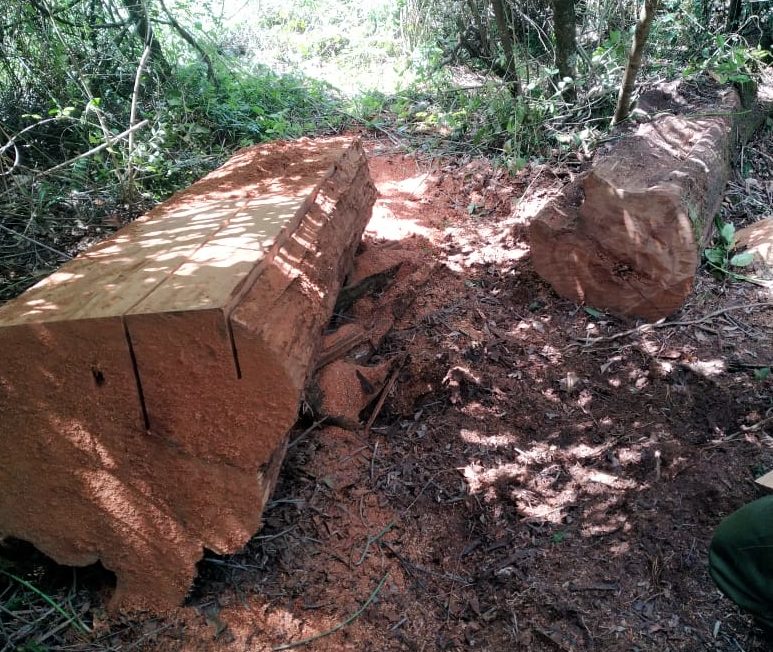
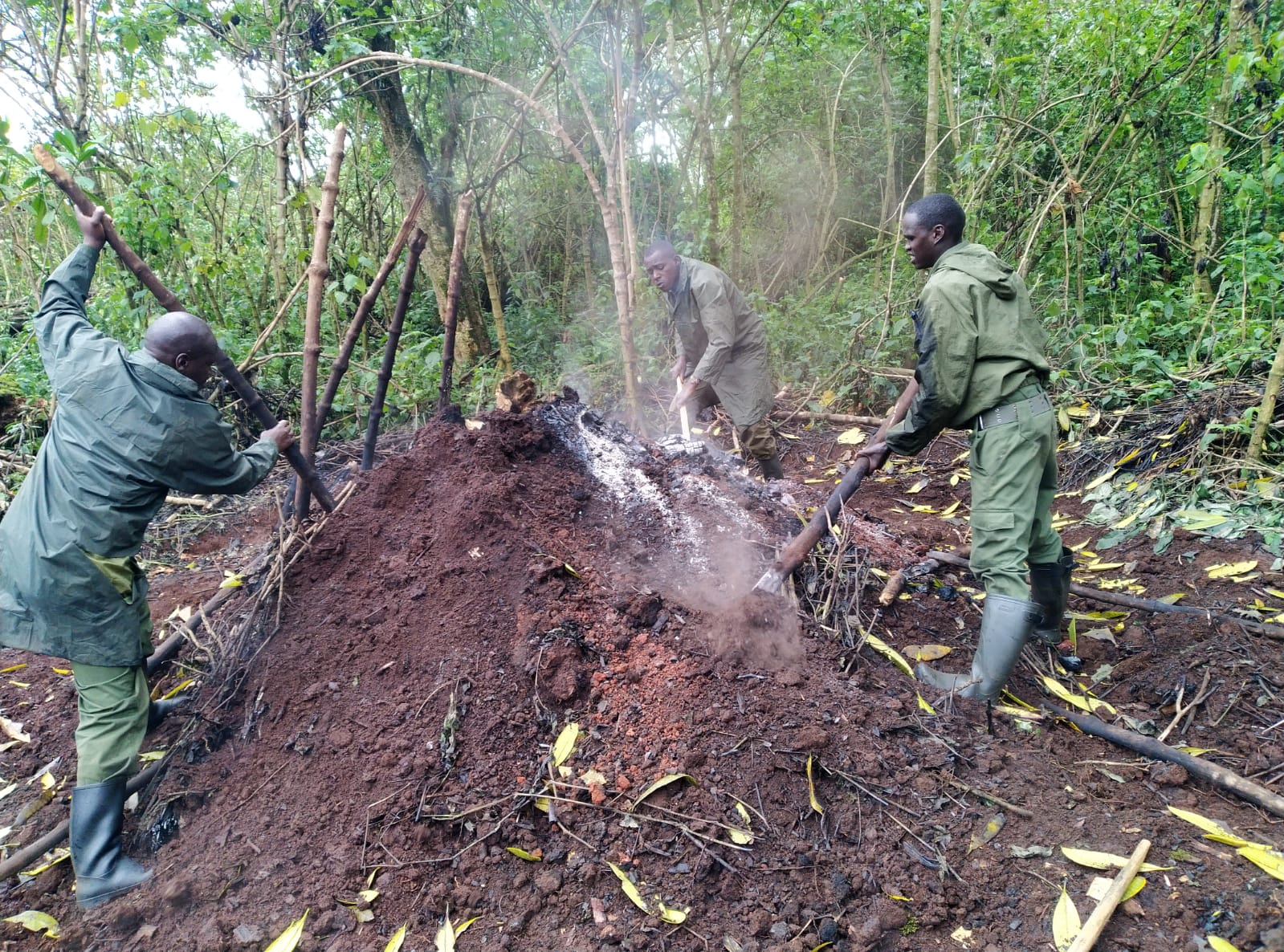
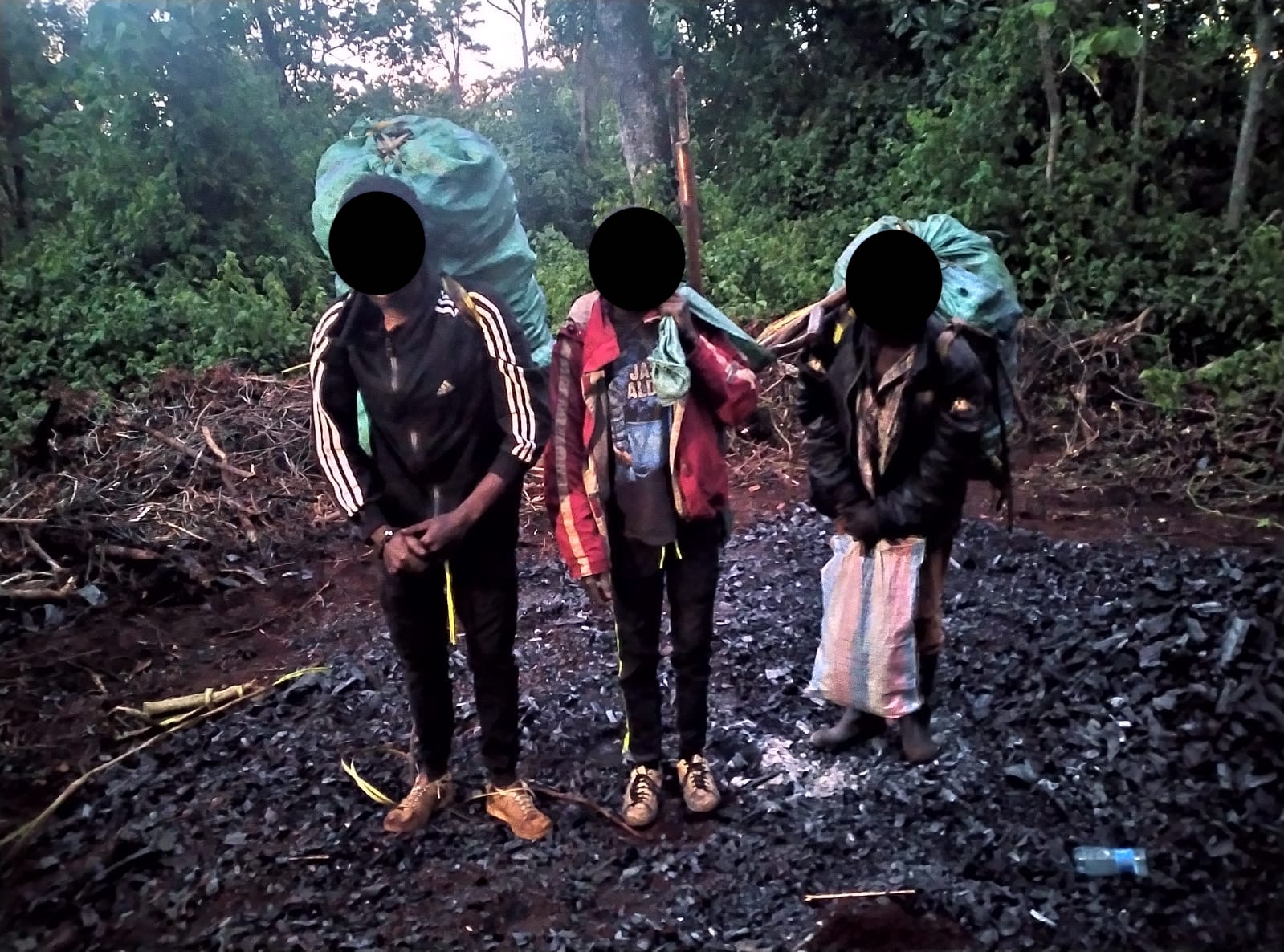
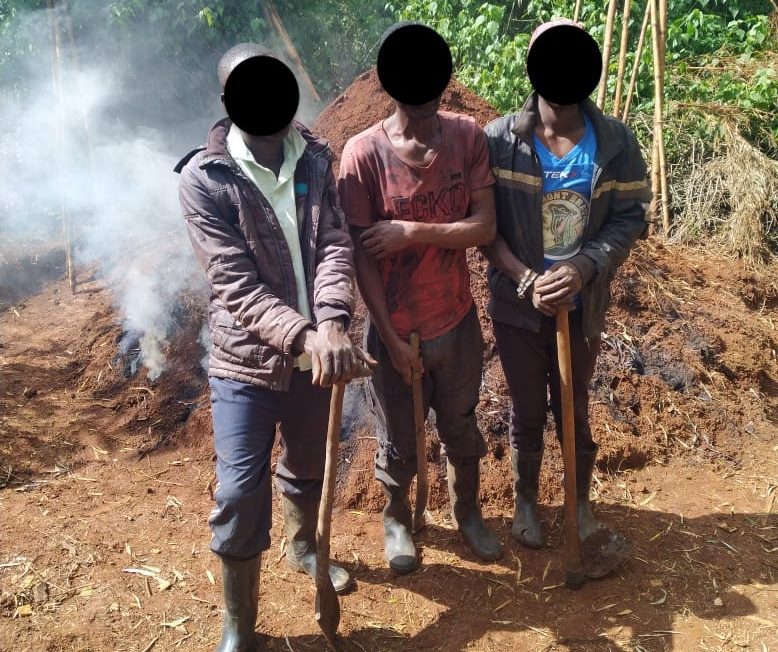
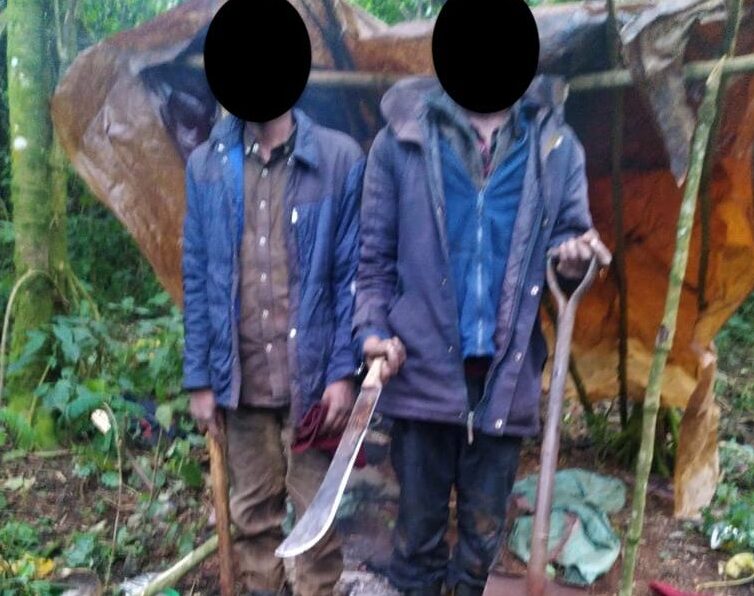
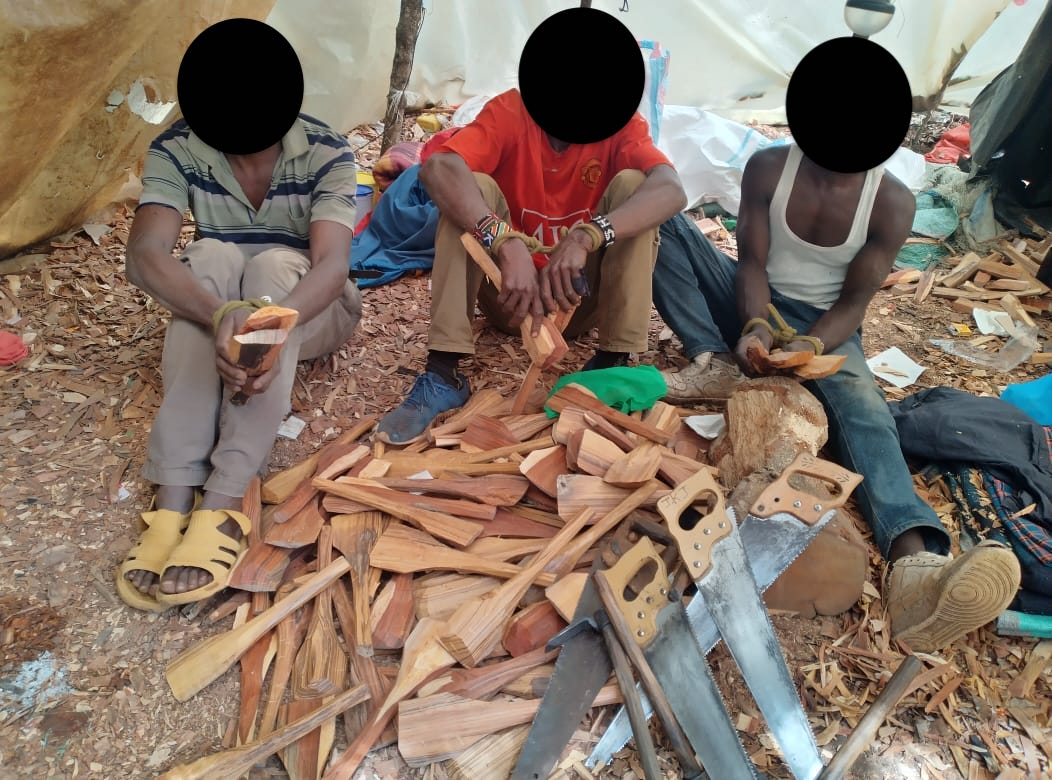
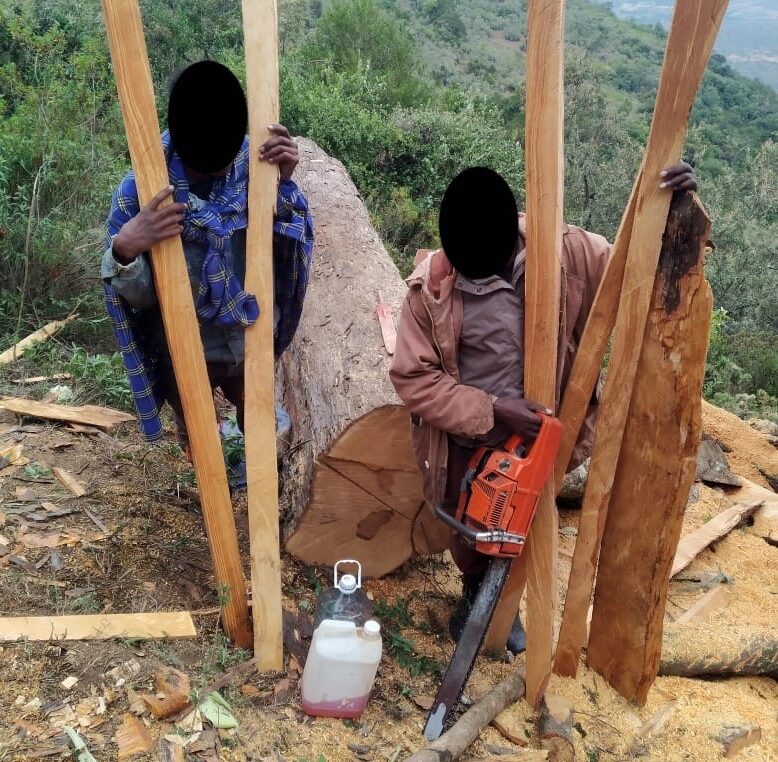
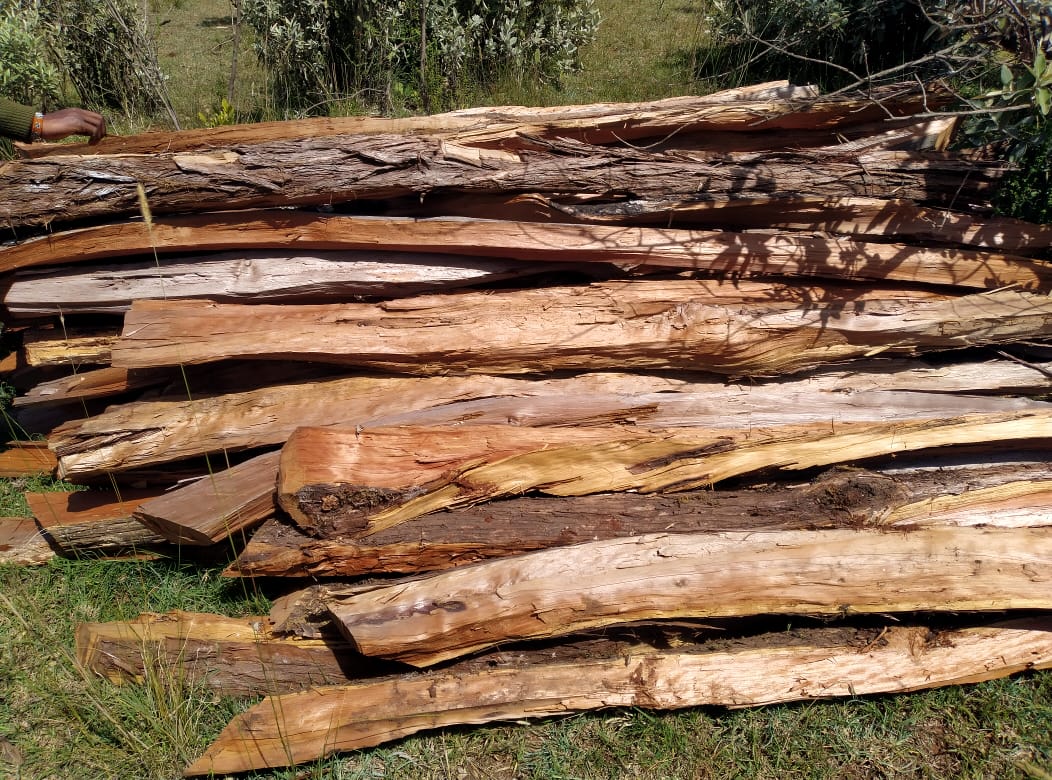
The Nyakweri Forest in the Greater Mara Ecosystem is home to collared elephant Fitz, sponsored by Angama Foundation, and his herd of 60 elephants: it’s also at risk with increased levels of deforestation. The MEP “Foxtrot” ranger team is tasked with combatting the ever-increasing deforestation activities, mitigating conflict between the encroaching communities and the elephants that call this forest home and ensuring Fitz and his herd’s protection to these threats. It’s a big task for this team of Maasai men and women, and scenes of forest destruction unfortunately are all too common. On May 23, they were simultaneously destroying new charcoal kilns while moving Fitz and his herd away from the devastated part of the forest.
The good news is, we’ve partnered with Seedballs Kenya to distribute seedballs, charcoal balls with an indigenous seed inside, after we’ve encountered an area of the forest in need to regeneration. Once the elephants have been moved out, and the kilns have been destroyed, we distribute the seedballs and let nature do the rest.
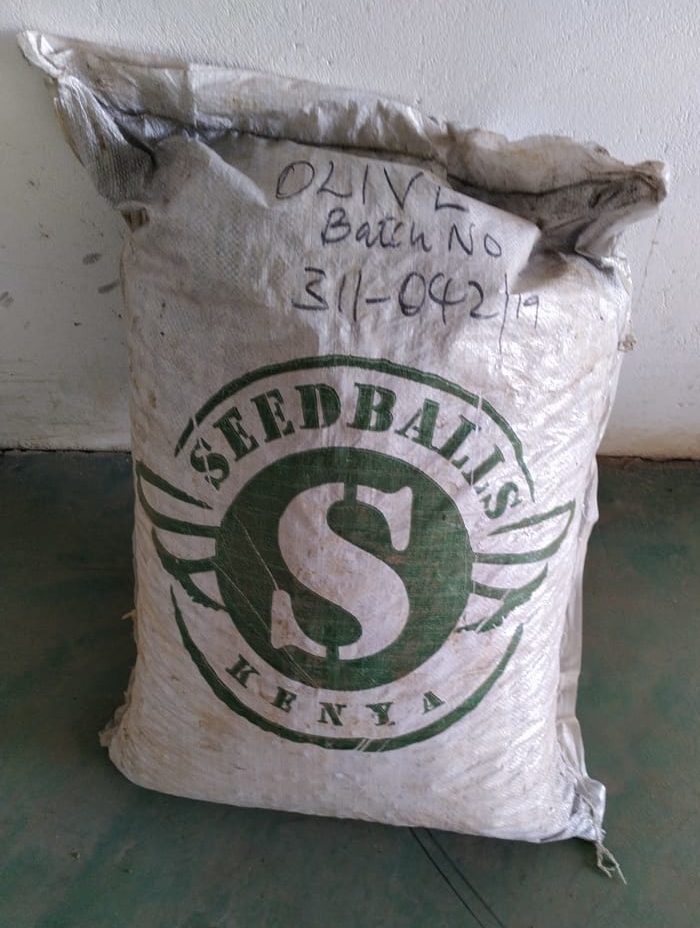
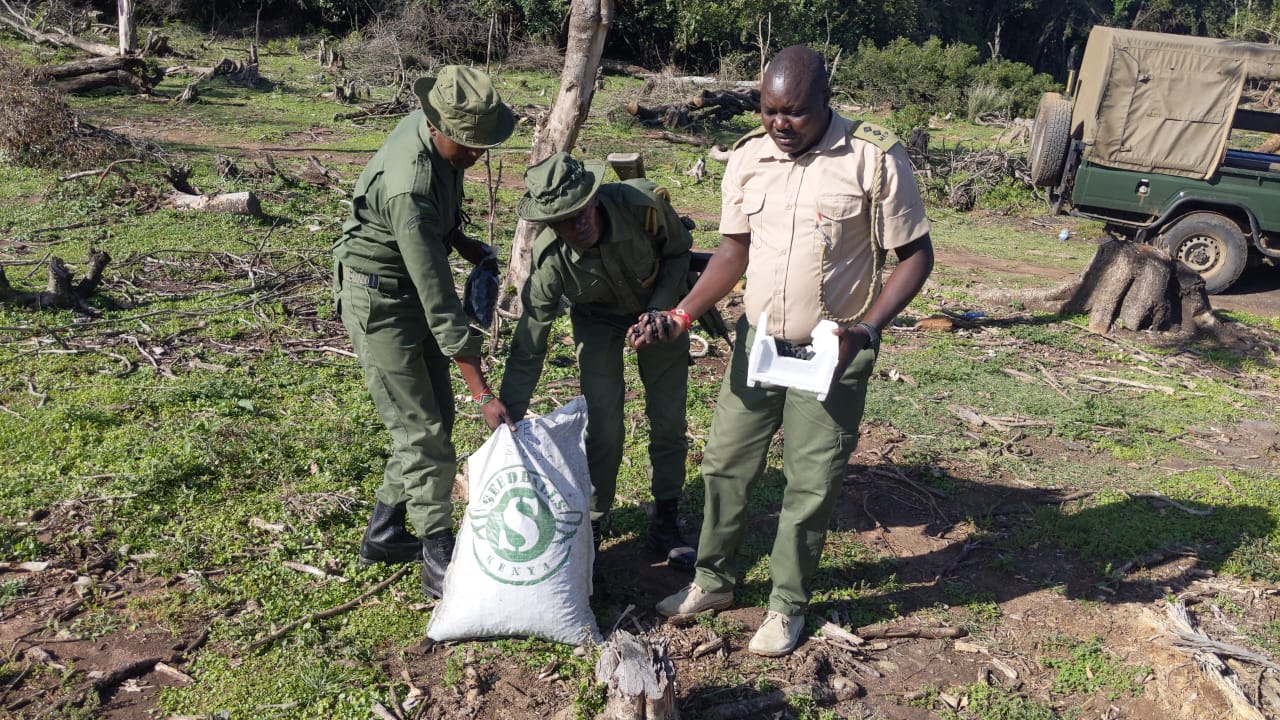
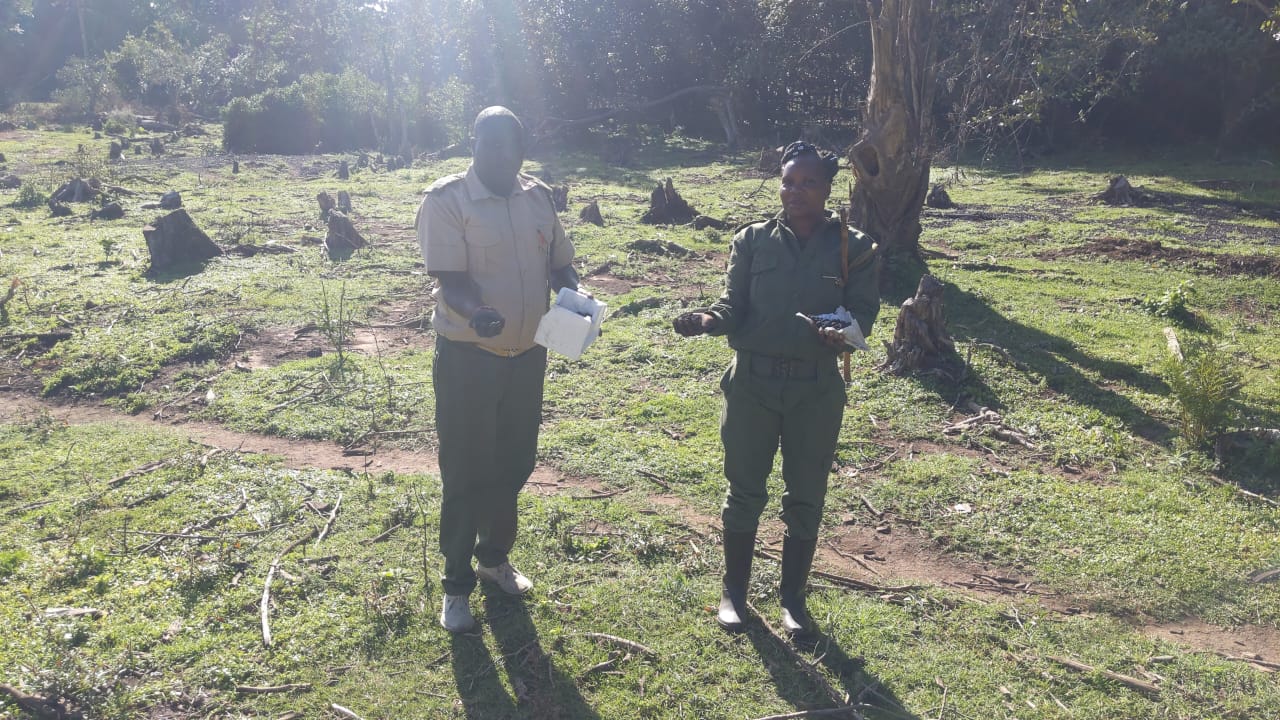

Overall, in the second quarter, MEP rangers alongside government partners arrested 43 habitat destruction suspects, confiscated 631 posts, 826 pieces of timber and 43 trees, recovered four power saws, and destroyed 100 kilns and 36 sacks of charcoal. They also arrested five bushmeat poaching suspects, recovered 1.5 kg of bushmeat and removed 26 snares. In the second quarter, MEP rangers patrolled a distance of 41,116 km by car and 3,390 km on foot in the GME.
Over a two-day period in April the MEP “Bravo” team alongside partner South Rift Association of Land Owners (SORALO) started a foot patrol on the east side of the forest and moved west, stopping in the middle of the forest to make a fly camp and spend the night. Their patrol covered 47 km (29 miles) and ended at their base camp.
Overall, in the second quarter, MEP’s rangers mitigated a total of 19 conflict incidents. MEP’s rapid response team alongside Assistant Senior Warden Jackson Maitai responded on May 26 to a herd of 10 elephants that included collared elephant Matali raiding a farm in the Ngosuani area of the Mara, not far from headquarters. They began their mitigation efforts in the afternoon, and they lasted well into the night. The farm was surrounded by a fence and filled with ripe maize (corn) and beans. The rapid response team used their vehicle, drums to make loud noises, torches (flashlights) for a bright light and firecrackers that combine both (and never hurt the wildlife). Finally, by 12:19 a.m. the next day, the elephants moved out of the area thanks to the team’s efforts.
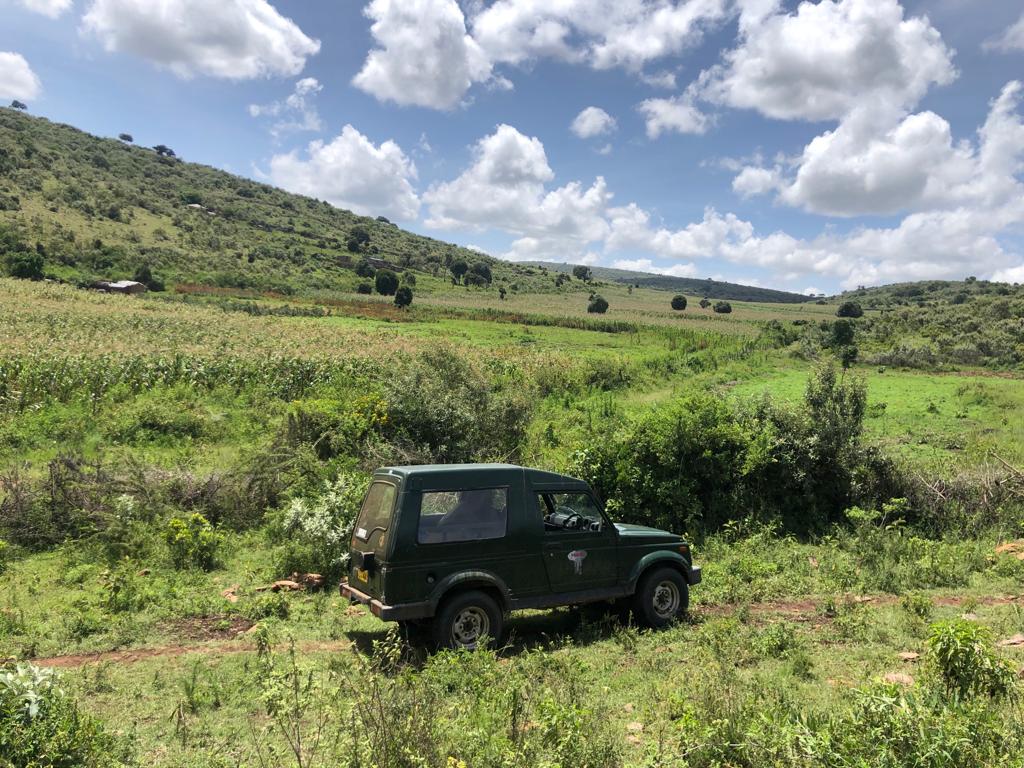
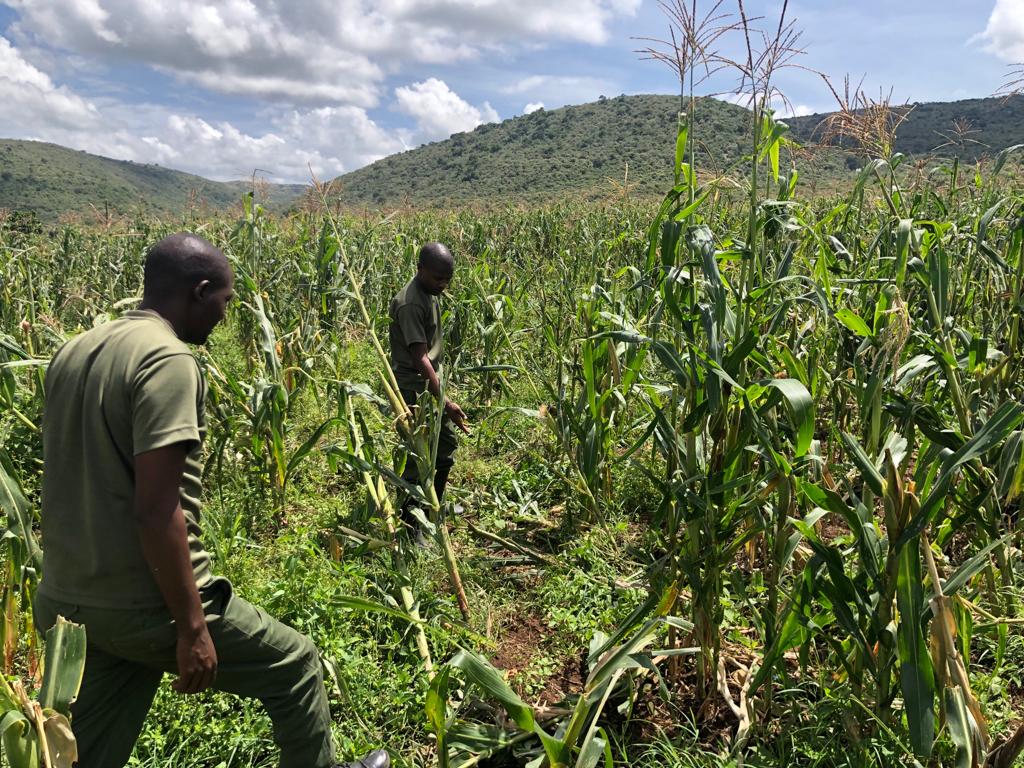

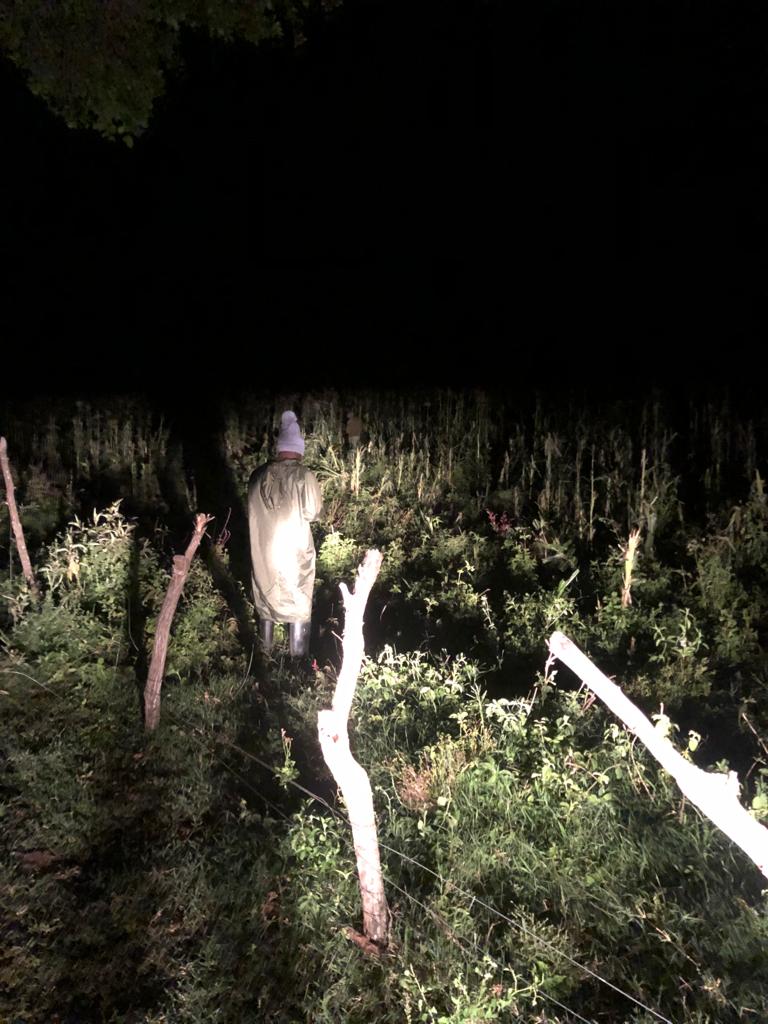
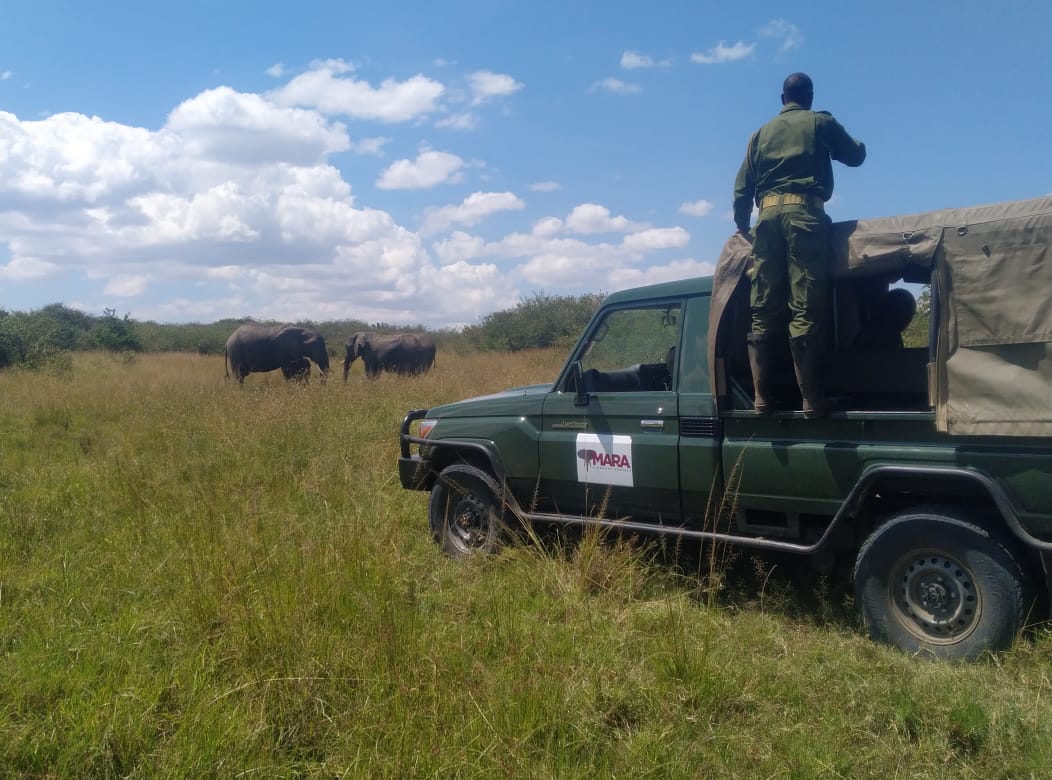
There were several key elephant treatments that MEP rangers teamed up with KWS and the Sheldrick Wildlife Trust (SWT) for in the second quarter. On June 16, the MEP “Foxtrot” ranger team spotted a bull elephant with an injury on his left side, near a rib. The KWS Vet Dr. Ephantus Ndambiri from the SWT Mara Mobile Vet Unit attended to the elephant, and successfully treated the spear wound. This bull was part of a pair that MEP rangers has responded to push out of community’s farms and remained to keep a close eye on him after treatment. Finally, on June 29, we once again collaborated with KWS Vet Dr. Ephantus Ndambiri from the SWT Mara Mobile Vet Unit to treat a bull elephant in Mara North Conservancy for an arrow wound on his head right next to his ear. Working closely with partners like KWS, SWT and local conservancies is critical to protecting elephants in the Mara.

